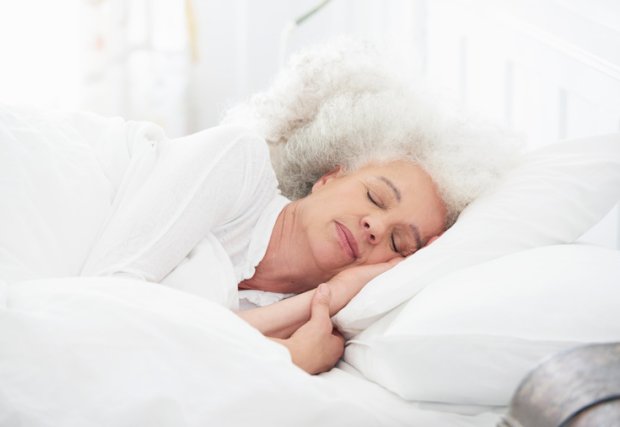Evaluate your environment
 Remove distractions in your bedroom such as TVs and cell phones. Also, choose an alarm clock with red numbers. “Blue and green lights inhibit the production of melatonin, a hormone that aids in falling asleep,” says family medicine physician Seth Switzer, MD. Also, consider the temperature. Many sleep experts say that a cool room makes for the best sleep.*
Remove distractions in your bedroom such as TVs and cell phones. Also, choose an alarm clock with red numbers. “Blue and green lights inhibit the production of melatonin, a hormone that aids in falling asleep,” says family medicine physician Seth Switzer, MD. Also, consider the temperature. Many sleep experts say that a cool room makes for the best sleep.*
Develop a sleep schedule
Go to bed and wake up at the same time every day, even on weekends. Sleeping in on a Saturday doesn’t make up for rest lost during the week. It can also make waking up early on Monday more difficult.
Regulate eating, drinking and exercising
Restrict late-night eating to light snacks, since digestion after a large meal can interrupt sleep. Avoid anything containing caffeine such as coffee, cola and chocolate. Caffeine is a stimulant and can take as long as eight hours to wear off. Exercising within three hours of bedtime can also stimulate your system and impair sleep.
Check your medicines
Some medications, including over-the-counter treatments for colds and allergies, can interfere with sleep patterns. Discuss any concerns with your healthcare provider. “Your doctor may also recommend a sleep study, which can detect underlying problems,” says Dr. Switzer.
Put light in your life
Your natural (circadian) rhythms have a lot to do with how well you sleep. Doctors recommend exposure to natural sunlight for at least 30 minutes a day. They also say that if you have trouble falling asleep, go outside for an hour of morning sunlight and dim the lights at least an hour before bedtime.

Sleep Disorders Center
The Sleep Disorders Center at St. Mary’s provides sleep studies and other services to diagnose and treat sleep disorders such as sleep apnea, insomnia and others. Equipment for a home study is also available.
*National Sleep Foundation®

